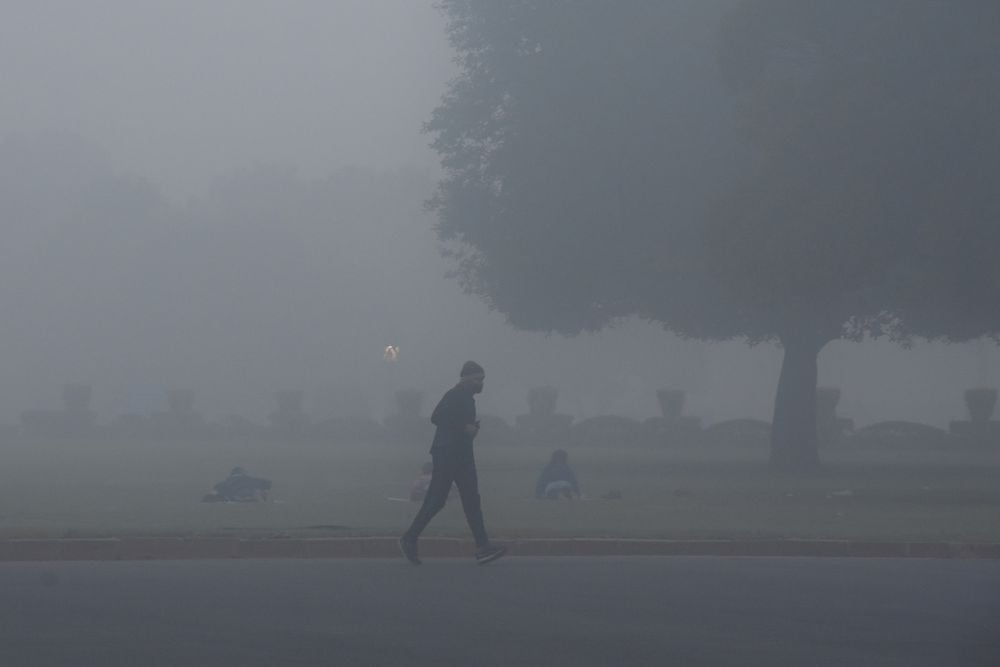Save millions of lives and slow the advance of climate change to keep warming within the least catastrophic limits possible.
It is the recipe proposed by those responsible for a study in which the benefits for human health that climate policies may have related to changes in diet, the reduction of emissions that worsen air quality and mobility are calculated.
The report focuses on nine countries responsible for 70% of global greenhouse emissions and where 50% of the world's population lives, including the two main pollutants on the planet: China and the United States.
The authors estimate that in those nine countries alone, up to 6.4 million lives could be saved per year with improved diets starting in 2040. Also, the proposed air pollution reduction policies would prevent 1.6 million annual deaths and those of active mobility (such as cycling and walking more) 2.1 million deaths.
To arrive at these figures, the authors of this study published in the journal
The Lancet Planetary Health
start from a scenario of compliance with the objective of the Paris Agreement of achieving that the increase in the average temperature of the planet stays below 2 degrees with respect to to pre-industrial levels.
To meet this goal it is necessary to achieve net zero emissions during the second half of this century;
and all the signatory countries of the climate pact must present plans to reduce their greenhouse gases.
The authors translate these measures into benefits for the health of the population and project the lives that can be saved.
The area in which they see more scope for action is in relation to changes in diet, which must be transformed towards a greater consumption of fruits and vegetables and a reduction in the consumption of red meat and processed foods, thus They are close to flexiterian diets (close to vegetarian but with occasional animal protein).
The study takes into account local differences, leading to a proposal for a reduction in consumption of uneven red meat: while South Africa, the United Kingdom, Brazil, China, Germany and the United States consider a decrease in between the 86% and 92%, in India it is not defended that it is lowered due to the little amount of this protein that is consumed there.
Regarding the climate policies that would lead to the improvement of air quality, the analysis indicates that, if the goal of 2 degrees of the Paris Agreement is met, the concentrations of PM2.5 particles related to fossil fuels will fall 73% in 2040 on average in the nine countries analyzed.
This would prevent up to 1.6 million deaths annually.
Finally, when it comes to mobility, the greatest health benefits for their citizens from increased walking and cycling would be achieved in the United States, South Africa, China and the United Kingdom.
"In essence, the Paris Agreement can be considered as a public health treaty," explains María Neira, director of the Department of Public Health and Environment of the WHO.
The World Health Organization, explains this doctor, has spent decades influencing the relationship between climate change and pollution and health problems.
But Neira admits that in recent years there has been a
boom
in studies of this type.
“At WHO we also put a lot of emphasis on positive arguments;
in other words, that people see climate change as a problem, but also see that there are solutions that are positive for health, ”he points out in relation to the report by
The Lancet
, a publication with which his organization has collaborated for years.
"Policies against climate change have benefits that will also help us avoid vulnerabilities with respect to pandemics or air quality, and that entail economic benefits," adds Neira.
"Climate change is a health problem," sums up Julio Díaz Jiménez, a researcher at the National School of Health at the Carlos III Health Institute.
Díaz also appreciates in recent years an increase in studies and articles in which global warming, pollution and health problems are related.
"For years it did a lot of damage that climate change was related only to polar bears and the loss of biodiversity," adds this researcher, who applauds the proliferation of analyzes that put health in the spotlight.
However, Díaz believes that it is necessary to take another leap and go from reporting with a “global approach” to addressing impacts with a “local approach”.
For example, it would be necessary to try that scientists go beyond the models in which premature deaths caused by pollution are calculated globally, to analyze these problems locally and thus to be able to apply concrete action plans.
In addition, this researcher calls for more action from politicians in this line and raises, for example, the need for Spain to have a health and climate change observatory that allows decision-making.
Victims of fossil fuels
The Lancet study has coincided with another article, this one published in the journal Environmental Research, in which it is stated that pollution generated by fossil fuels is behind 20% of annual deaths in the world, which is around eight million people die each year.
The WHO has pointed out for years that seven million people die annually on the planet due to poor air quality and that 75% are the responsibility of fossil fuels.
The study published now raises that figure further based on data from 2012 and 2018 and a new accounting model.
In Spain, there are 44,603 people over 14 years of age who die each year as a result of air pollution from PM2.5 particles associated with fossil fuels.
To find out the most important news on Climate and Environment from EL PAÍS, sign up here for our
weekly
newsletter
.
Follow the Climate and Environment section on
and

